Future of enforcement of legislation
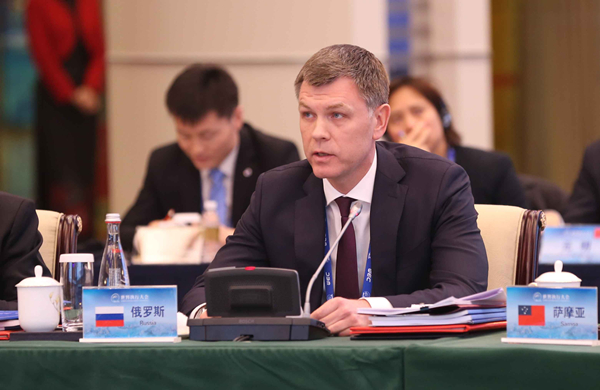 |
| Dmitrii Aristov, director of the Federal Bailiffs' Service and chief bailiff of the Russian Federation, introduces Russia's laws and regulations of enforcement at a seminar themed on "the Future of Enforcement Legislation" at the World Enforcement Conference on Jan 22. He explained that the main way to lower enforcement costs and improve efficiency in Russia is to set up systems to decrease manual engagement in enforcement procedures. Modern information technology plays an important role, through which a large amount of data can be automatically processed and coordination with other departments becomes easier. In addition, he said that Russia is making efforts to simplify enforcement methods, which in the future w ill include dealing with simple violations through the online system. A special law on execution is expected to be issued to unify related regulations and Russia will learn from other countries' experience. [Photo/court.gov.cn] |
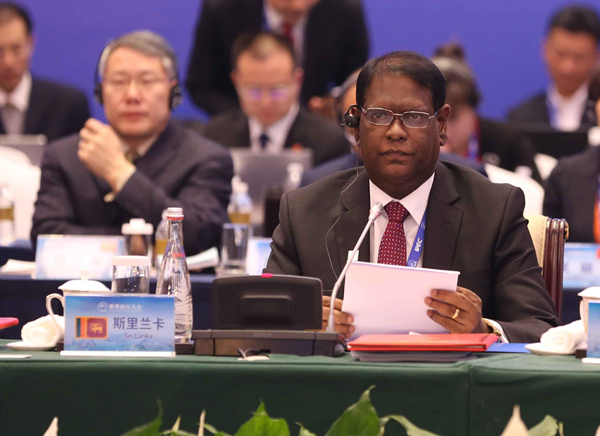 |
| Nalin Perera, chief justice of the Supreme Court of the Democratic Socialist Republic of Sri Lanka, introduces Sri Lanka's legal system and its efforts to solve international disputes at a seminar themed on "the Future of Enforcement Legislation" at the World Enforcement Conference on Jan 22. He said that the Supreme Court is the highest judicial body in Sri Lanka and its main functions include interpretation of the Constitution and basic human rights, allocation of jurisdiction and giving case judgments. Judges are in charge of enforcement matters. He added that Sri Lanka has agreements with many countries on judicial assistance of civil and commercial affairs and legislation of international judicial assistance is under consideration which will benefit resolution of cross-border disputes and promote enforcement of foreign judgments. [Photo/court.gov.cn] |
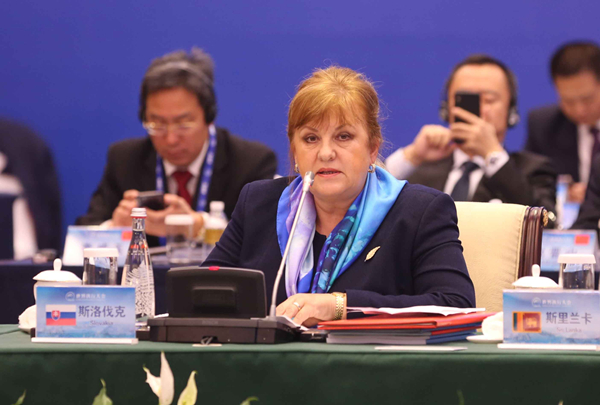 |
| Jarmila Urbancová, vice-president of the Supreme Court of the Slovak Republic, delivers a speech on her country's judicial reform which improves efficiency and fairness of enforcement procedures through information technology at a seminar themed on "the Future of Enforcement Legislation" at the World Enforcement Conference on Jan 22. She explained the amendment of judicial laws which requires creditors to send applications to courts' email and communications between enforcement officers and the courts are also now conducted online. In addition, enforcement officers are randomly allocated which avoids man-made elements and the same officer will be allocated to deal with cases involving the same debtors, which saves costs. [Photo/court.gov.cn] |
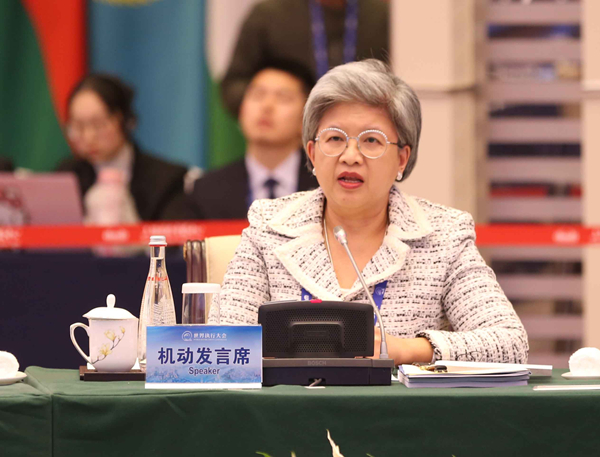 |
| Ruenvadee Suwanmongkol, director-general of the Legal Execution Department of the Ministry of Justice of the Kingdom of Thailand, delivers a speech on the future of legislation of enforcement in Thailand at a seminar themed on "the Future of Enforcement Legislation" at the World Enforcement Conference on Jan 22. She said that Thailand aims to build a stable, prosperous and sustainable legal system and has released a 20-year national plan on promoting sound and legal governance. She also introduced that an amendment on the Civil Procedure Law was passed in 2017 which includes promoting modern procedures of property distrainment and judicial auction, simplifying enforcement procedures and litigation procedures and improving human rights protection. She also mentioned that enforcement bodies in Thailand will work from paperless offices after Oct 1, 2019. [Photo/court.gov.cn] |
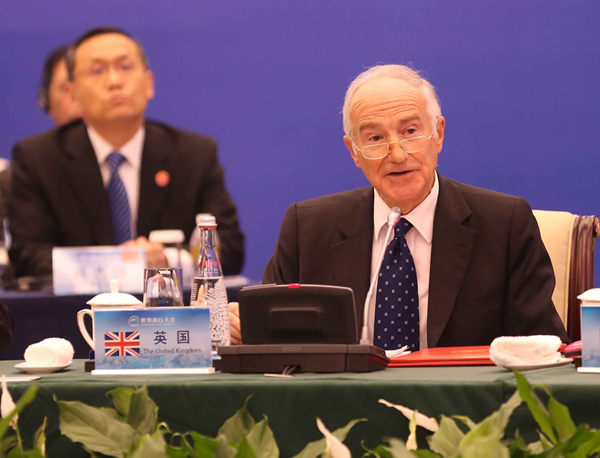 |
| Sir William Blair, immediate past head of the Commercial Court of England and Wales of the United Kingdom of Great Britain and Northern Ireland, shares his views on international judicial cooperation at a seminar themed on "the Future of Enforcement Legislation" at the World Enforcement Conference on Jan 22. He stressed that international judicial cooperation plays an important role in the enforcement of foreign judgments, especially the judgments related to civil and commercial cases . He said that although a memorandum of understanding does not have legal force, it shows the signing parts' willingness to cooperate in improving enforcement. He also urges that more experience-sharing events and international cooperation should be in place to promote enforcement efficiency. [Photo/court.gov.cn] |
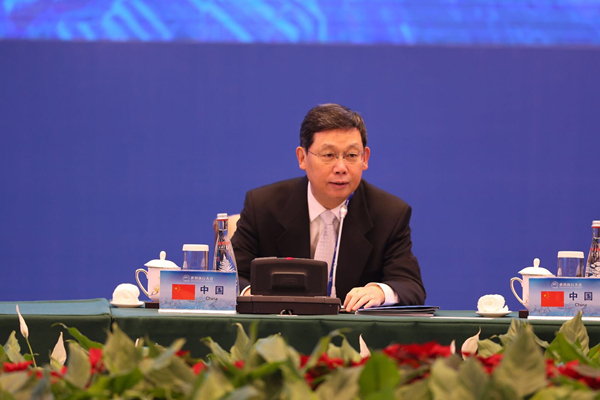 |
| Jiang Wei, justice and vice-president of the Supreme People's Court (SPC) of the People's Republic of China, outlines the enforcement system in China and the goal of enforcement at a seminar themed on "the Future of Enforcement Legislation" at the World Enforcement Conference on Jan 22. He introduced that China's legislative bodies have started background investigation and drafting of the civil compulsory execution law and the SPC-led group drafting the Civil Compulsory Execution Law is attempting to complete it by the end of 2019. He also said that other countries' experiences in enforcement work will help China make a scientific, practical and logical execution law and welcomed delegates from all over the world to make suggestions regarding China's enforcement work. [Photo/court.gov.cn] |







